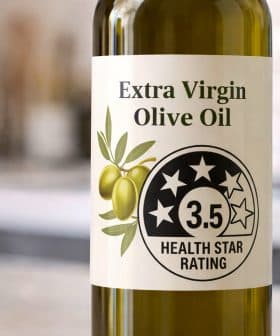Mediterranean Diet with a Swiss Twist Lowers Cancer and Heart Disease Risk
A recent study in Switzerland found that adherence to a Mediterranean diet, despite cultural differences, was associated with reduced risk of mortality from cancer and heart disease. The study included over 17,000 participants from different language regions in Switzerland and found that dairy consumption was unexpectedly associated with lower risk of mortality from all causes.
Visitors to a recent trade fair in Zurich, who evaluated 140 samples, preferred EVOOs with a sweet taste over those which were bitter. Whichever olive oil taste profile people favor deep in butter country, a recent study has shown, even a culturally-adapted adherence to the traditional Mediterranean style diet can extend their lives.
The Mediterranean diet, rich in fruits, vegetables, legumes, complex carbohydrates, olive oil, fish and wine but low in dairy and meat, has been associated with longevity and a low incidence of cancer and heart disease. The protective effect, more pronounced in the Mediterranean countries, prompted researchers in Switzerland to determine if adherence to a Mediterranean diet was effective in a Swiss population influenced by their German, Italian and French cultures.
The study included 17,861 participants who were part of two major studies conducted in Switzerland: The National Research Program 1A and The Swiss Monitoring of Trends and Determinants in Cardiovascular Disease. The researchers selected a culturally diverse population from the three distinct language regions of Switzerland for whom mortality follow-up was available for over 30 years through the national health and statistical registry.
See Also:Articles about the Mediterranean Diet
The study associated adherence to the Mediterranean diet with death from cancer, cardiovascular disease and all causes, however the diet, had one distinct difference. Unlike the traditional low-dairy Mediterranean diet, milk and dairy products are an integral part of the Swiss diet and were consumed almost daily by the sample population.
Diet intake was analyzed using a simplified 24-hour recall method where the participants responded in affirmative or negative to intake of 11 different food groups: salads, fruits, vegetables, dairy products, grains, meat, fish, type of oil, alcohol, eggs and chocolate. The researchers scored adherence to the Mediterranean diet using a 9‑point score, where minimal adherence was a score of 0 and maximum adherence by a score of 9.
Frequency of food group intake by the 8,665 men and 9,196 women, whose average age was 45 years at the time of the survey, was almost similar but had two notable differences. Women ate fruit more frequently than men did, while men consumed alcohol more frequently than the women.
Statistical analysis revealed that fruit consumption lowered risk of dying from heart disease and cancer in both genders, although a higher intake of monounsaturated and risk of death from heart disease was only observed in men. On the other hand, alcohol consumption lowered risk of mortality from cardiovascular disease but increased risk of dying from cancer.
The most interesting result, however, was the association between consumption of dairy products and lower risk of mortality from all causes, cancer, and heart disease in both men and women. These results are in contrast to the consensus that dairy products increase intake of saturated fats and thereby increase risk of cardiovascular disease.
A possible explanation the investigators offer to the unexpected beneficial association observed in this study could be that Swiss dairy products from “purely grass-fed alpine cows” are high in n‑3 fatty acids and have a lower content of saturated fat than dairy products from other countries. The authors also quote other literature that found a protective effect of dairy consumption to incidence of heart disease and cancer.
Even though the study had one main drawback – a crude one-day method used to assess food intake — the study found that adherence to a Mediterranean diet that embraced cultural differences was beneficial to health and reduced risk of mortality from cancer and heart disease.









